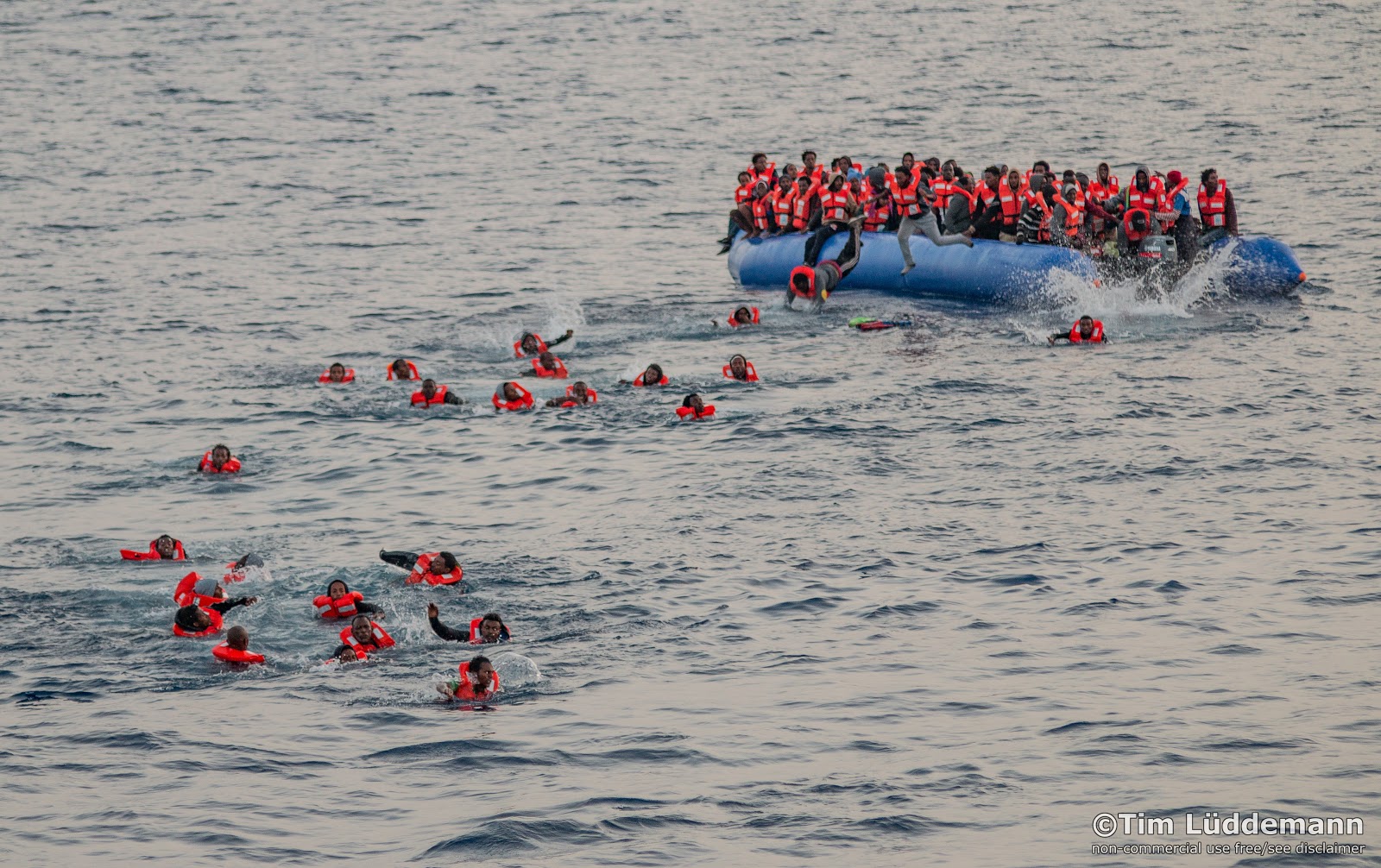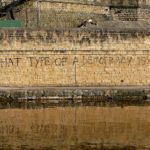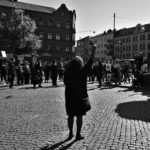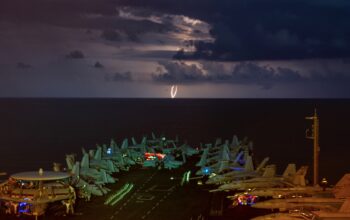Shortly after the Turkish government announced that they would no longer prevent migrants from crossing the Greek border a video appeared on my social media feed: A brown field with a few specks of grass and a handful of leafless bushes, small figure moving in the background, a woman screaming, following after a man carrying a seemingly unconscious toddler under the winter sky veiled in clouds of tear gas.
In a climate of increasing xenophobia, the EU negotiated a deal with Turkey that would allocate billions of Euros to Turkey in exchange for the country preventing refugees and migrants crossing over to the EU. The influx of people was slowed down for a while but did not prevent continued attempts to enter the EU by land or sea putting pressure mostly on Mediterranean countries (Greece, Italy). In Greece, where the atmosphere is becoming increasingly hostile towards refugees, the right-wing New Democracy party replaced the left-wing Syriza government in snap elections in July 2019 following a campaign partly based on promises of heavy crackdowns on migration. Their latest move finds expression in the plan to build a floating 2.7 km long barrier in the Aegean Sea meant to ward off refugee boats heading for Lesbos.
When, in early 2020, the Greek government announced plans to build closed detention centres, locals on Chios and Lesbos stormed construction sites in opposition and clashed with riot police. The following weeks saw attacks on asylum seekers, humanitarian workers and journalists. In this climate of mounting tensions, thousands of people saw their hopes of finding humane refuge in the EU crushed as they gathered behind fences and barbed wire at the Greek–Turkish border in late February, and were met with tear gas, water cannons and flashbangs.
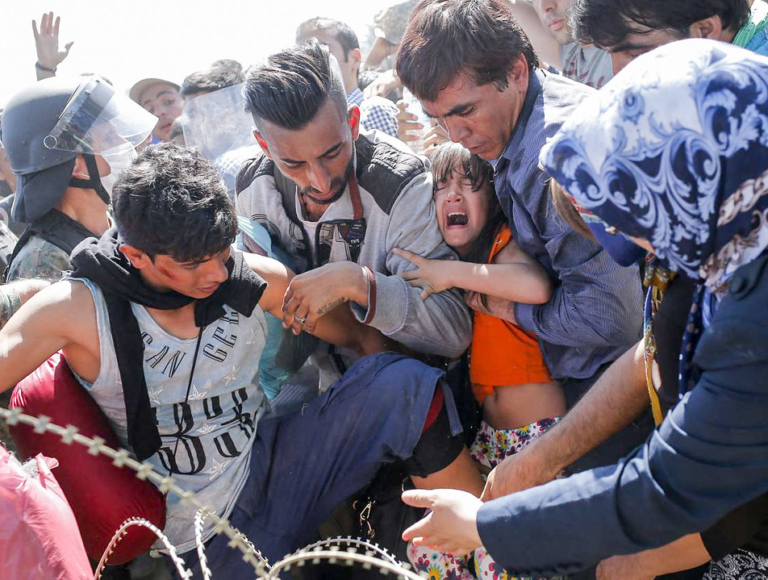
Europe’s “shield”
Expecting yet another wave of people fleeing the ongoing battle in Idlib, Syria, the Turkish government decided to open its border to the EU for more than 4 million refugees already located in the country. Some reports even speak of Turkish officials forcing refugees and migrants to leave the country and head towards Greece. In Europe, Turkey’s manoeuvre was largely perceived as an attempt to blackmail the EU into supporting Turkey’s military actions in northern Syria and force more concessions in relation to the 2016 migration deal. “This is a blatant attempt by Turkey to use desperate people to promote its geopolitical agenda and to divert attention from the horrible situation in Syria”, the Greek government said.
Video uploaded on ManotoNews (Persian) shows Turkish military police threatening to beat this Afghan group at gun point, telling them “why did you come here if you don’t want to cross to the Greek border”pic.twitter.com/jAQaYwlVss
— Daphne Tolis (@daphnetoli) March 7, 2020
With a look at the situation as a whole, however, it becomes impossible to find fault on part of Turkey alone. Both Turkey and the EU have made themselves culpable of having turned those who flee the horrors of war into mere pawns in their game of chess; be it to gather military and financial support and obtain more privileged relations with the EU, or to appease right-wing parties and movements and distract from the shortcomings of the Dublin Agreement. In the wake of this dehumanising game of chess, people’s lives, health and dignity have been put on the line without a moment’s consideration.
While Ursula von der Leyen, President of the European Commission, travelled to Greece to thank the country for its tough handling of the border situation and describing it as Europe’s “shield”, the Greek government, describing the influx of refugees as an “invasion”, suspended asylum applications for a month despite the right to asylum being granted under international law. And while Argyris Papastathis, deputy head of Greek Prime Minister Kyriakos Mitsotakis’ press office claimed that Greek forces were not firing live ammunition, witnesses report shots being fired from the Greek side of the border, although it is unclear if they were fired by a police officer, soldiers or local vigilante.
An Afghan man who was treated at a Turkish hospital for burn injuries says a Greek border guard poured boiling water on him as he attempted to cross the land border in #Evros – via @enginbas pic.twitter.com/fpKk62wlkv
— Daphne Tolis (@daphnetoli) March 10, 2020
Only the dead have seen the end of war
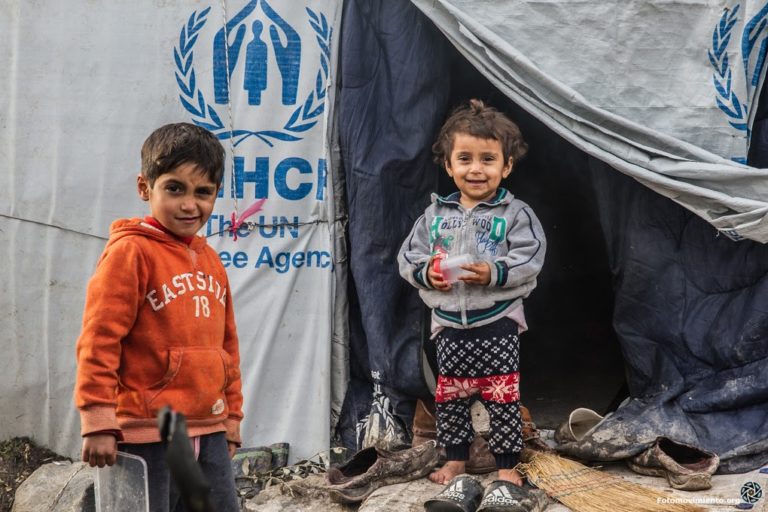
In the midst of it all, concerns about the coronavirus spreading in overcrowded Greek refugee camps are growing. The situation in camps such as the Moria camp on Lesbos has been described as “living hell”. The camp was designed for 3 000 people. However, it currently hosts 20 000. Three square metres of living space are at times shared by five to six people. “That’s a catastrophic situation regarding water and sanitation”, Florian Westphal (MSF) told Deutsche Welle. “The lack of water in the Moria camp is really dramatic. (…) In some parts of the camp, people have built shelters from plastic sheeting. Up to 1 300 people are using a single source of water. (…) Up to 160 people on average are having to use one toilet. Our main demand to the European Union is very clear: You must start now to evacuate these people from Moria.” Ali, a 33-year-old from Idlib, describes Moria as “just a place for waiting for death. Life in Moria is impossible – believe me – most of us here have changed psychologically. Some people have lost their minds.”
The EU began as a neoliberal project designed to maintain peace in Europe. And while, at least in its beginnings, it was predominantly an economic union, the EU has evolved into an international organisation that likes to see itself as a defender of peace and human rights. The situation in the Mediterranean, however, sheds serious doubt on this self-image: Greece, weakened from the financial crisis of 2008, is largely left alone by other EU member states in managing the arrival of those in search for protection – unphased by the misery in Greece’s refugee camps, a migration policy is deployed that voluntarily accepts the drowning of human beings in order to prevent others from arriving, the EU continues to cooperate with the Libyan coast guard knowing about Libyan detention camps and the crimes committed against migrants, deals set to backfire and be broken sooner or later are made with Turkey to dodge responsibility, and those (NGOs and civilians) taking seriously the obligation to save refugees from drowning in face of the EU’s inaction are criminalised.
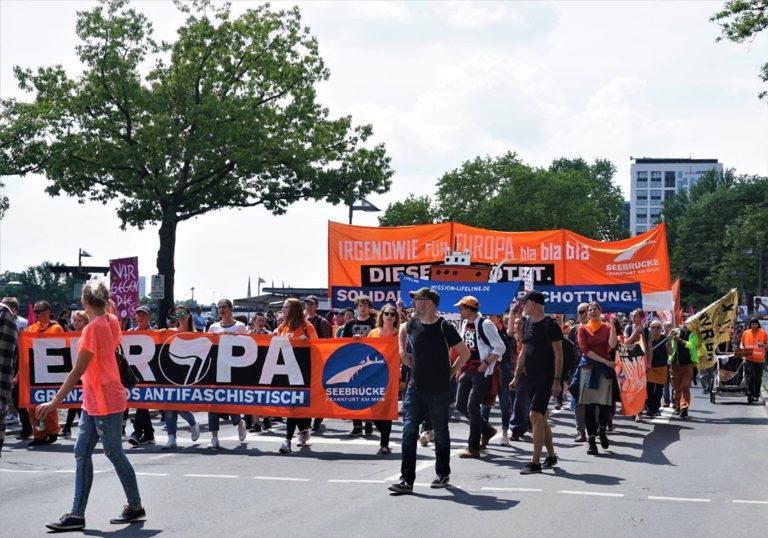
While European leaders seem to have forgotten the humanitarian spirit of Europe – and perhaps the political elite has always been the wrong place to look for it – can still be found in organisations such as Mission Lifeline, movements such as Seebrücke, and initiatives such as the complaint for crimes against humanity against the EU connected to its migration policy (Germany, France and Italy in particular) in front of the ICC by lawyers Omer Shatz and Juan Branco. It remains to hope that the EU (re)discovers its commitment to humanity and human rights instead of remaining caught up in a game of chess with Turkey that pushes back and forth blame and responsibility sacrificing human beings as it goes on.
by Merle Emrich
Photo Credits
Rescue at Mediterranean // 21/05/2018, Tim Lüddemann, CC BY-NC-SA 2.0
Syrian Refugees, Freedom House, Public Domain Mark 1.0
2018_01_28_Grecia_Manu_26, Fotomovimiento, CC BY-NC-ND 2.0
Seebrücke, Merle Emrich, All Rights Reserved
